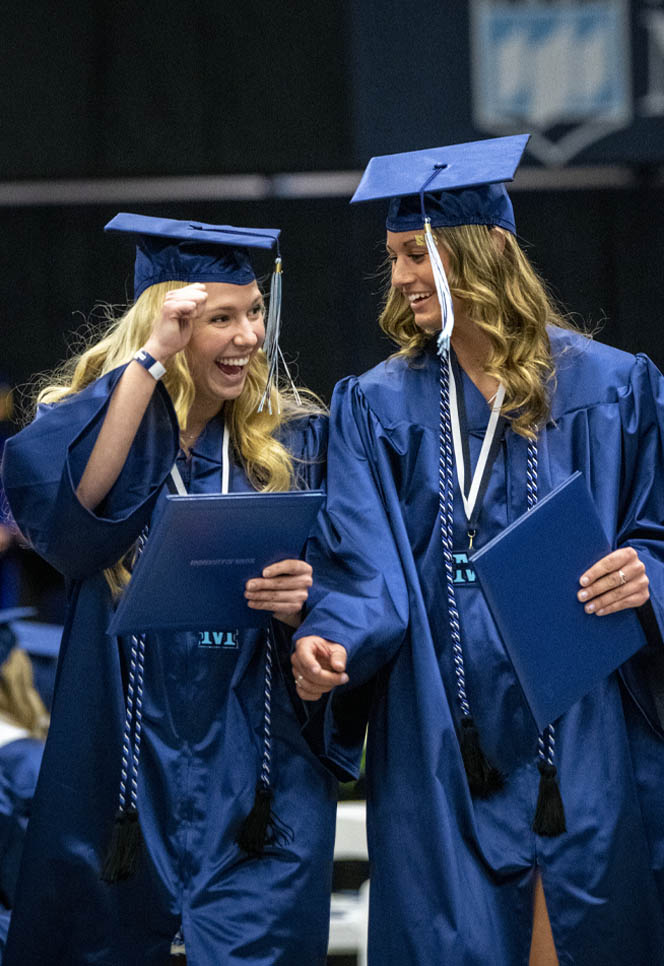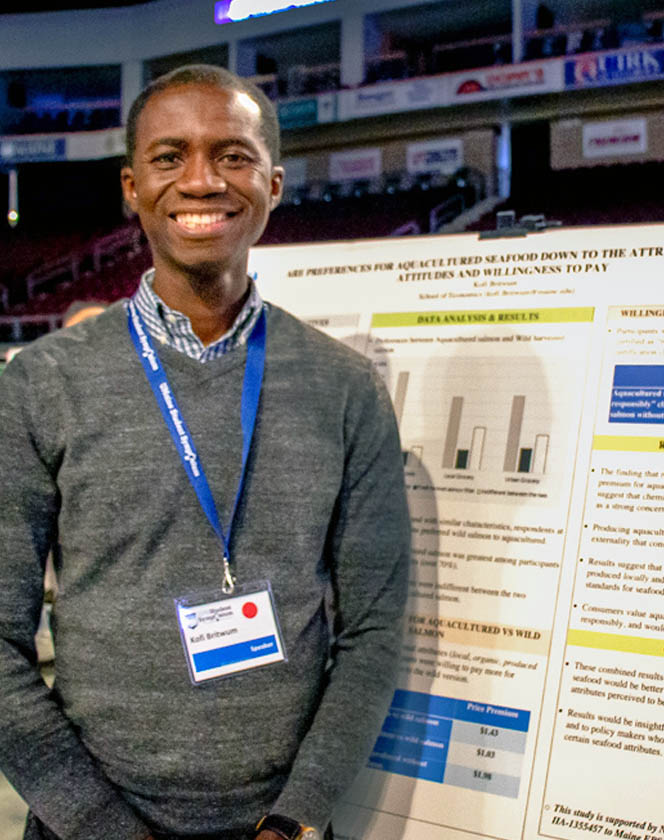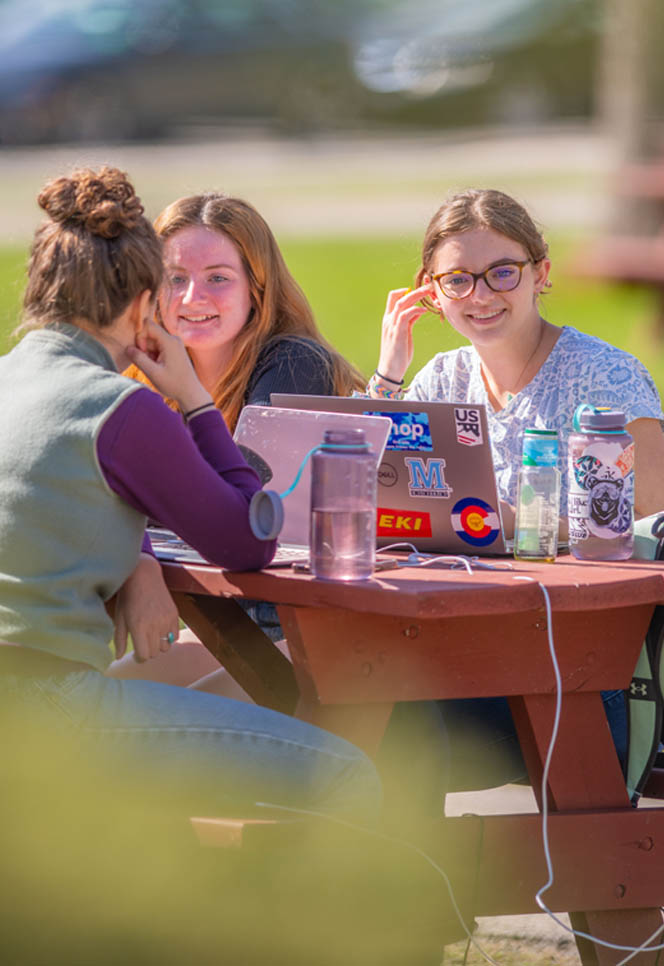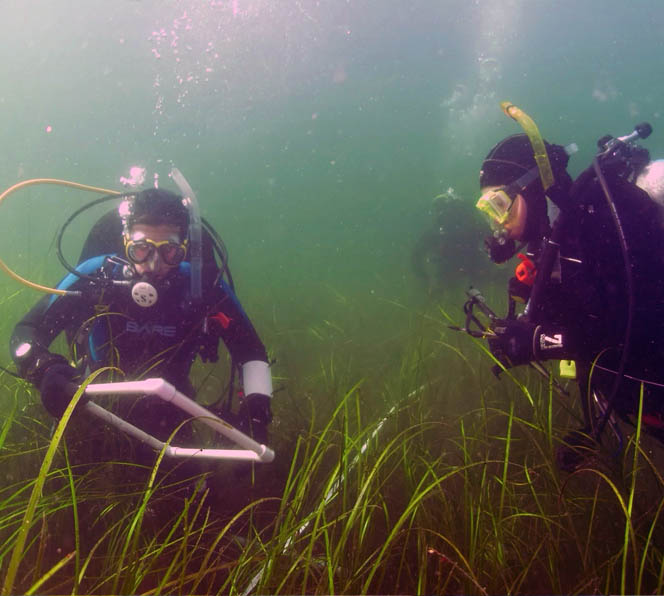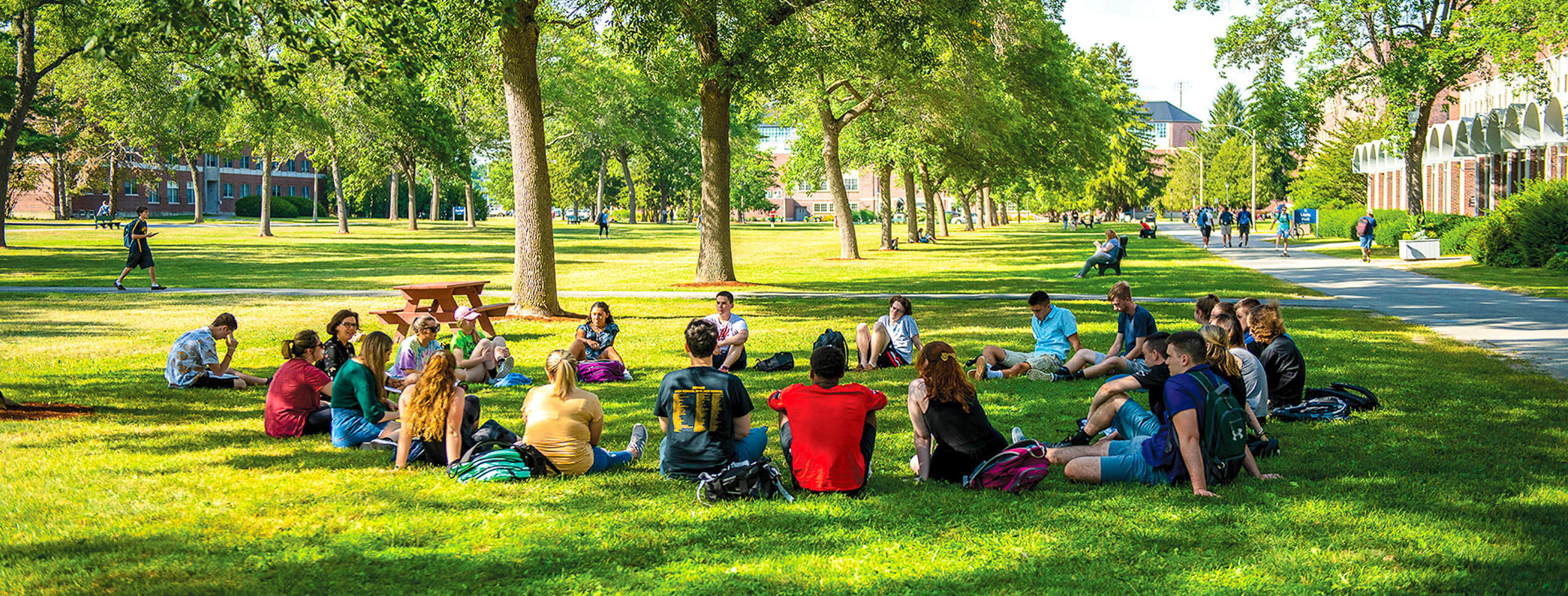
The UMaine compass
A learning compass should be a central part of a student’s education. This compass would guide students beyond even their majors or minors, encouraging them to find identity, agency, and purpose during their time at UMaine and beyond.
A UMaine compass would support various aspects of students’ growth–e.g., maturing from situational to sustainable value systems; fostering developmentally appropriate forms of responsibility; attending to emotional growth and challenges; sparking intellectual curiosity; supporting appropriate levels of academic and personal risk taking, and change; developing social bonds, networks, and responsivity; developing forms of resilience when failures are met; and, igniting hopes and plans for the future. UMaine should seek to move away from a model of teaching and learning that makes students consumers of sometimes disparate pieces of knowledge to one that develops their capacity to mobilize and integrate cognitive, emotional, and social resources that will shape the breadth of their lives and society for years now and into the future. A UMaine education should serve as a guide across one’s whole life.
Focus Areas
- Whole Person Education
- Education for Life (Now and Post-Graduation)
- Finding One’s Path
- Life Transformative Education
- In the Age of Acceleration and AI What Makes Us Human?
Recommendations
Develop a “learning compass ” as a central part of a student’s education, which moves beyond simply having a major and includes developing human capacities such as social and emotional skills, being able to consider and engage with views and values that are different from one’s own, facing problems, expanding one’s capacity for creativity, developing analytic, critical thinking and communication skills, etc.
UMaine should actively promote the development of students’ personal leadership. Models such as Leadership Maine , Outward Bound could be adapted and delivered as part of an RLE (research learning experience) or similar program.
The curriculum and culture should reflect that we are moving into a NEW TIME with multiple ways of knowing — immersive cross-cultural experiences. UMaine needs to be flexible, nimble and innovative.
There should be an intentional focus on creating a scaffold for the whole student: mental health, physical health and well-being, wise member of the world.
Develop a student compass – expand the roles of UMaine in supporting educators, integrate learning outcomes / majors.
Increase number and centrality of co-op programs and “real-world problems” courses that: 1) connect students to activities / responsibilities pertinent to their future jobs / life responsibilities, and 2) connect them to a network of mentors inside and beyond the university.
Create additional resource systems that can support health, mental health, economic well-being, and care-giving responsibilities in students, staff and faculty, especially those that can respond to disparities in these arenas.
Prioritize development of skills that translate across disciplines and across life (especially in terms of writing, communicating with people professionally, making presentations, technological skills, financial literacy, etc.).
Encourage opportunities to create a continuum of undergraduate students becoming mentors — establish a virtuous cycle of near-peer mentorship (include graduate and post-grad students).
Develop mosaic mentorship and networking programs that partner with other UMS campuses and DEI-focused organizations in the state and nationwide.
Support research and teaching approaches that involve students in activities that promote agency, curiosity, willingness to respond to “failures” and road blocks, etc.
Universities have a key role to play in providing learners with the skillsets that will be important for the industry of tomorrow: complex reasoning, creativity, socio-emotional intelligence and sensory perception. These skills are increasingly acquired through practice and experience not in traditional classrooms.
Host conversations that help faculty to discuss expectations of the types of activities / developed capacities that they expect of students both within and outside of the classroom.
Increase ability for students to develop themselves as young adults who can face and handle problems that arise in life (without resorting to their parents to fix it).
Reconstruct General Education program around a problem-based focus. Students would choose an interdisciplinary track focused around one of these problems and pursue it with a cohort of peers. Examples of tracks could be Climate Change, Social Service Provision, Education Reform, DEI, Changing Technology, Education for Real Life, etc. RLEs could also be a part of this work.
Help students develop skills that translate across disciplines and across life (especially in terms of writing, communicating with people professionally, making presentations, technological skills, financial literacy, etc.) It is increasingly critical to do a better job of immersing students in the workforce and creating career pathways either in-house or virtually.
